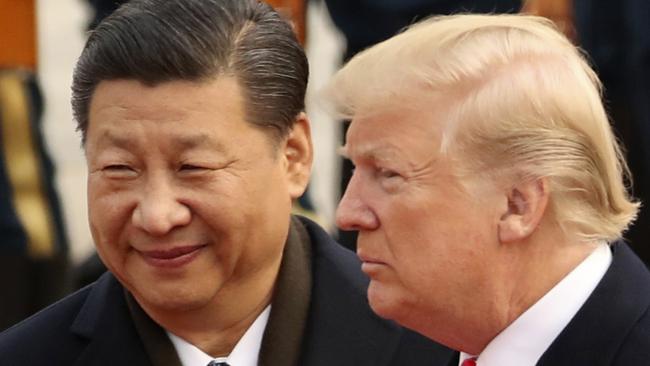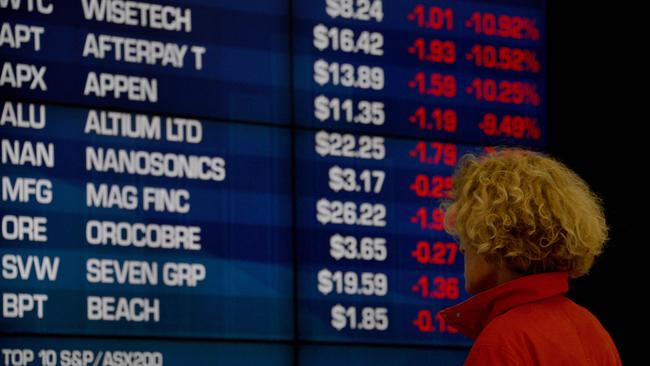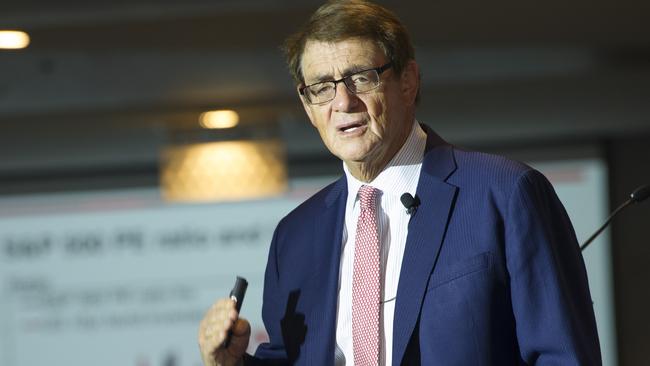Australian economy losing steam as bumpy ride looms
Australia’s economy is losing steam as consumers tighten the purse strings and the housing market deteriorates, official figures reveal, and the slowdown is likely to stay the hand of the Reserve Bank.
Business
Don't miss out on the headlines from Business. Followed categories will be added to My News.
Australia’s economy is losing steam as consumers tighten the purse strings and the housing market deteriorates, official figures reveal.
And the slowdown is likely to stay the hand of the Reserve Bank, which will probably wait far longer before moving to lift the cash rate — and may yet cut it, analysts say.
The economy, measured by gross domestic product, grew 0.3 per cent in the three months to September, according to the Australian Bureau of Statistics.
BUDGET MAY SOON BE IN BLACK AFTER GDP SURGE
GDP SPIKES WHILE THE RATE OF SAVINGS PLUMMETS

That was the slowest rate for any quarter in two years. Over the year to September, GDP grew 2.8 per cent, down from 3.1 per cent three months earlier.
Economists had broadly expected GDP to grow a far more robust 0.6 per cent the past quarter and 3.3 per cent the past year.
The lacklustre revelations on Wednesday coincided with fresh concerns about the outlook for the global economy — a development that weighed heavily on the share market.
Analysts have grown sceptical that the truce brokered last weekend in the trade stoush between the US and China will last.
After key Wall Street indices fell more than 3 per cent overnight Tuesday, Australia’s benchmark ASX 200 index dropped 1.8 per cent in early trade. It recovered much of that ground but still closed more than 40 points, or almost 0.8 per cent, lower.

CMC Markets strategist Michael McCarthy said it “remains a very fraught time and it could be a very difficult week for Australian investors”.
The ABS figures revealed that the household savings ratio — the amount of cash households put away relative to their disposable income — has fallen to just 2.4 per cent amid tepid wage growth. That is the lowest proportion since 2007.
Much of the weakness in the GDP figure was a result of a sharp slide in mining investment, economists said.
While consumer spending climbed, it grew just 0.3 per cent for the quarter, compared with expectations for an already-weak 0.5 per cent.
Westpac chief economist Bill Evans said the broad results would “come as a disappointment to the Reserve Bank”. Mr Evans said he expected the RBA to soon lower its projection for GDP growth this year, from 3.5 per cent to 3 per cent.

“If we are right that the bank will revise down its growth forecasts on the basis of this result then lower expected growth momentum going into 2020 may also temper the bank’s attitude to rates in 2020 as well,” Mr Evans said.
He noted there had been a 0.8 per cent fall in investment in new housing the past quarter — a development that “most likely signals the beginning of a long period of contraction as the broader housing market slows”.
George Tharenou, an economist at investment bank UBS, labelled the September quarter slowdown in GDP growth a “slump”.
“We still see rates on hold through 2020, but can’t rule out a cut if weak data continues next year, especially (around the) consumer price index and wages,” he said in a report for investors.


